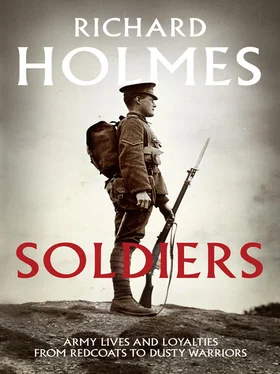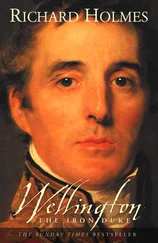In volunteering, many MPs turned their backs on the manicured world of old, comfortable Britain. Tommy Agar-Robartes left beautiful Lanhydrock to die at Loos commanding a company of the Coldstream, and William Gladstone, grandson of the grand old man of Victorian liberalism, set off from Hawarden Castle to perish as a lieutenant in the Royal Welch Fusiliers in 1915. Sir Fredrick Cawley of Berrington Hall, Leominster had four sons and of these, three died. One was a regular cavalryman in 1914 and the other two, both MPs, died at Gallipoli in 1915 and the Western Front in August 1918. Sometimes we remember them for oblique reasons. Major Valentine Fleming, member for South Oxfordshire, died at Arras in May 1917 commanding a squadron of the Queen’s Own Oxfordshire Hussars: his son Ian was to be the creator of James Bond.
Distinctions between Commons and Lords are unhelpful, for eleven of the MPs who died were peers’ sons, and some would have gone on to inherit the family peerage. Approximately 1500 members of the 685 peerage families in the United Kingdom served in the war, and 270 were killed or died of wounds. 12The oldest was 82-year-old Field Marshal Earl Roberts, who had won his VC in the Indian Mutiny. He had been the army’s last commander-in-chief and was carried off by pneumonia at St Omer in November 1914, during a visit to Indian troops in France. The youngest was 17-year-old Midshipman the Hon Bernard Bailey, youngest son of Lord Glenusk, who perished when the armoured cruiser HMS Defence blew up at Jutland. His eldest brother fought with the Grenadiers on the Western Front throughout the war, and was commanding a battalion at the war’s end. His second brother, farming in East Africa when war broke out, returned to England at once and the fact that he had been a lance corporal in the Eton College OTC helped him waft into the Grenadiers. He was killed at Givenchy on 10 August 1915, and lies in Guards Cemetery, Windy Corner, not far from Brigadier-General the Hon John Hepburn-Stuart-Forbes-Trefusis, late of the Irish Guards and one of Lord Clinton’s sons, who died two weeks later.
The concentric ripples of family and friendship made the relationship between Westminster and the war even more pervasive. Herbert Asquith, Prime Minister at the start of the war, had four sons. The eldest, Raymond, died with the Grenadiers on the Somme; Herbert served as a gunner officer on the Western Front, and the much-wounded Arthur commanded a brigade of the Royal Naval Division. Anthony, being born in 1902, was too young to serve. All three sons of Labour leader Arthur Henderson fought: the eldest was killed on the Somme, where he lies, with a brisk walk in the lee of Delville Wood between him and Raymond Asquith. Liberal politician Jack Seely, had served in the yeomanry in the Boer War, and been forced to resign as secretary of state for war over the Curragh affair in 1914. He commanded the Canadian Cavalry Brigade on the Western Front, and his son Frank, a second lieutenant in the Hampshires (the family lived on the Isle of Wight and this was the county regiment) was killed at Arras in 1917.
Although the military demand for manpower in the Second World War was much smaller than in the First, twenty-three MPs died on war service, although this includes seven who perished in aircraft crashes, a retired lieutenant colonel who killed himself, fearing that an old wound might prevent his going on active service, and Private Patrick Munro, MP for Llandaff and Barry, who died on a Home Guard training exercise. Sir Arnold Wilson had served in the Indian Army before the First World War, had gone on to become a colonial administrator, and was elected Conservative MP for Hitchin in 1933. The New Statesman thought him ‘an admirer of Hitler’, but when war came he affirmed ‘I have no desire to shelter myself and live in safety behind the bodies of millions of our young men.’ He joined the Royal Air Force Volunteer Reserve as a pilot officer air gunner, and was killed at 56 over France in 1940. John Whiteley, elected MP for Buckingham in 1937, had served as a gunner officer in the First World War, and died as a brigadier when the aircraft carrying General Sikorsky crashed at Gibraltar in 1943. Peers and their children (for women were now conscripted) also served in large numbers, and relationships within the Westminster village meant that, just as had been the case in the First World War, there were intimate links between the two houses. The Hon Richard Wood, third son of the Earl of Halifax, lost both legs but went on to serve as a junior minister in four administrations, and was ennobled as Baron Holderness. He married the daughter of Lieutenant Colonel Edward Orlando ‘Flash’ Kellett, MP for Birmingham Aston, who had been a regular officer before joining the yeomanry: Kellett was killed commanding the Sherwood Rangers in North Africa in 1943.
The cases of Edward Kellett and John Whitely underline the strength of military representation in the parliament of the inter-war years. In 1919, 12 per cent of new Conservative MPs had served in the forces. Between 1919 and 1939, ex-regular officers were, after lawyers, the second largest occupational group in the Commons. There were the very senior: Lieutenant General Sir Aylmer Hunter-Weston was elected Unionist MP for North Ayrshire in a October 1916 by-election while commanding a corps on the Somme. He left the army in 1919, and sat as an MP till 1935. Field Marshal Sir Henry Wilson was elected Unionist MP for North Down in 1921, though he was murdered by Irish nationalists outside his London home the following year. And there were the more junior: Jack Cohen sat for Liverpool Fairfield in 1918–31, and lost both legs at Passchendaele. Ian Fraser, who sat for St Pancras North in 1924–9 and 1931–7, then for Lonsdale in 1940–58, had been commissioned into the King’s Shropshire Light Infantry in time to be blinded on the Somme. He crowned a remarkable career by being ennobled as Baron Fraser of Lonsdale, Britain’s first life peer, in 1958.
Most striking is the close connection between military service and high office. Winston Churchill had fought on the North-West Frontier, at Omdurman and in the Boer War before entering politics. In 1916, widely blamed for the Gallipoli fiasco, he rejoined the army (having maintained his military status by serving in the yeomanry), and was attached to the Grenadier Guards to learn the ways of trench warfare before commanding 6th Royal Scots Fusiliers in the Ploegsteert sector, south of Ypres, for the first five months of 1916.
Churchill’s deputy from 1940 to 1945, and his successor after that year’s general election, was Labour leader Clement Attlee. He had been a lecturer at the London School of Economics when war broke out in 1914, and was immediately commissioned into the South Lancashire Regiment. In 1915 he commanded a company on Gallipoli, and probably owed his life to the fact that he was being treated for dysentery during some very heavy fighting. His company was one of those chosen to furnish the rearguard during the withdrawal from Suvla Bay in December, and he was the last but one man to leave. Attlee was wounded in Mesopotamia, so spent 1917 in Britain, and was then posted to the Western Front for the last six months of the war. In the inter-war years he styled himself ‘Major Attlee’, and his open, collegiate style of leadership reflected the skills needed to command a mixture of wartime volunteers and conscripts in a middle-of-the-road infantry regiment.
Attlee was ousted by Churchill in 1951, and Churchill himself was succeeded in 1955 by Anthony Eden, a classic example of the well-connected officer (Durham landed-gentry, Eton and Oxford) who had a good war. He was commissioned into 21/King’s Royal Rifle Corps, proudly known as the Yeoman Rifles and raised by Charles, Earl of Feversham. The battalion was first committed to battle on the Somme on 15 September 1916; Feversham was killed that day. Eden won the Military Cross, became adjutant of his battalion and finally, aged just 21, became the youngest brigade major (chief of staff of a formation then comprising three infantry battalions) in the army. Styling himself Captain Eden he was elected to parliament in 1923. In 1939 he returned, briefly, to the army as a major. He served as foreign secretary from 1935 to 1938, when he resigned over appeasement. He held important posts during the war, lost one of his two sons in Burma, and again served as foreign secretary for part of Churchill’s second administration. By the time Eden became prime minister he was already past his best, and ended up resigning in 1957 as a result of the Suez affair. There is a strong case for blaming some of Eden’s misfortunes on the strains imposed by two years on the Western Front.
Читать дальше












